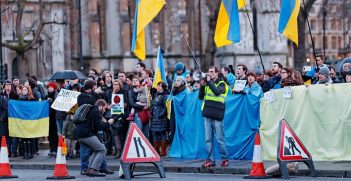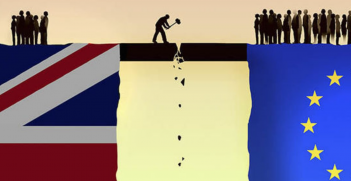The Serbian Roots of Kosovo Turmoil

Serbia is undermining European security and re-hashing the painful history of the 1990’s. The world should be alarmed.
When Russia invaded Ukraine in February of 2022, western policymakers urgently shifted their Balkans foreign policy strategy to bring Serbia into the fold. It hasn’t entirely been effective, as Serbia continues to ferment instability in an already fraught region, largely through its coercive and bullying tactics of a neighbour it does not recognise: which is Kosovo.
The recent events in Kosovo have highlighted a significant escalation of violence and have worsened already deteriorating relations between Belgrade and Pristina. According to renowned Balkans political analyst Jasmin Mujanovic, “Serbia is making a sharp u-turn back toward 1991 before our eyes.” Additionally, a policy of appeasement from the European Union (EU) and the United States is emboldening Belgrade. An urgent policy reset is needed.
On the 24 September 2023, around 30 gunmen were involved in an hours-long shootout with Kosovo authorities, killing a police officer in the town of Banjska in the country’s north. Other events in May, where 30 international peacekeepers were injured in riots by Serbian Nationalists, illustrate the emerging challenges for regional peace and stability. Later, Kosovo Prime Minister Albin Kurti alleged that the weapons, equipment, and vehicles utilised in the attack were too sophisticated, and that they enjoyed the full support of the Serbian state. Kurti also alleged that Milan Radoicic, a top Kosovo Serb politician, admitted that he planned and “received logistical, military equipment and preparation from Belgrade, and also received political orders from President Vucic.” The Director General of the Kosovo Police, Gazmend Hoxha, has alleged that the primary objective of the paramilitary force was to “annex the entire north of Kosovo.”
This has all been met with fierce denials from Serbian President Aleksander Vucic, who has stated that Serbia will investigate. Milan Radoicic ended up spending a mere 48 hours in custody and will not face justice in a Kosovo court. Belgrade clearly fears no genuine reprisals from the west. It is also crucial to note that Alexsander Vucic was the former Minister for Propaganda under Slobodan Milosevic.
Mere days after the death of the Kosovo policeman, and after the United States National Security Council accused Serbia of a major military build up along the border, United States ambassador to Serbia Christopher Hill suggested that Belgrade pursue NATO membership. This inconsistent and incoherent messaging is detrimental to Balkan Security and harms stability within the region.
Double standards for Kosovo are equally troubling. When Serbian nationalists boycotted mayoral elections in May of this year, US ambassador to Kosovo Jeff Hovenier and Senator Chris Murphy condemned Kosovo’s decision to access municipal buildings in the north of the country, despite Kosovo having the total legal justification and jurisdiction to do so. Additionally, Kosovo is under a punitive sanctions regime from the EU for failing to “de-escalate” tensions with its neighbour.
The policy plan proposed by Brussels is fundamentally misguided, and unfairly one-sided, and includes the withdrawal of special units from the Kosovo police in the north, the relocation of the mayors from the municipal buildings, and announcements of early elections. While Kosovo agrees with elections being rescheduled, Pristina’s other demands have been largely ignored by Serbia. Most troubling is that the future of Kosovo’s EU accession entirely runs through dialogue with Serbia, despite Vucic not wanting membership. This has caused a fundamental asymmetry in negotiations and plays into the hands of Belgrade.
Right now, murals are appearing over Serbia that say, “When the army returns to Kosovo.” Banners are being unfurled of the terrorists that were killed at Banksja in Kosovo at UEFA Champions League Matches while fans chant “ubij, zakolji, da šiptar ne postoji” – “kill and slaughter so that the Shiptar doesn’t exist.” To clarify, Shiptar is a derogatory term used against Albanians.
Renowned CNN international correspondent Christiane Amanpour pressed Vucic on his undermining of negotiations such as the Ohrid Agreement. Famously, Vucic and Kurti agreed upon terms in 2021, but only verbally. Immediately after, Vucic walked away from the agreement, and, refusing to sign it physically, he said “I have excruciating pain in my right hand. I can only sign with my right hand. And that pain is expected to continue for the next four years,” thereby making a mockery of mediation efforts. The agreement does not explicitly require that Serbia recognises the independence of Kosovo, but it does prevent Serbia from opposing the accession of Kosovo to international organisations like the Council of Europe, the EU or NATO. It does require Serbia to recognise Kosovar national symbols, diplomas, and vehicle registration plates, with the latter causing significant disputes.
Kosovo is required to ensure an appropriate level of autonomy for its ethnic Serb community. The ultimate goal of the agreement is to create “a legally binding agreement on comprehensive normalization of [Kosovo–Serbia] relations.” This is a sensible pathway forward, and a pathway only Belgrade has walked away from.
Commentary that suggests “Serbia today is playing an important role in promoting Balkan stability,” which were remarks from Serbia’s Ambassador to the United States, is a form of misinformation that has helped to create policy failure in western counterparts.
An urgent re-evaluation is needed, and it must be done on Kosovo’s terms. Currently, Serbia has organised and financed terrorist attacks against policeman in a neighbouring country, incited xenophobic rhetoric against Kosovar citizens, and has undermined broader social cohesion and security.
It is clear there are multiple perspectives at play. Positive policy moves from the west are occurring, such as the United Kingdom announcing that 200 troops will join peacekeepers in the region. There must be significant increases in NATO-led Kosovo Force (KFOR) troops, particularly in the north of the country. Additionally, the EU and United States should start to implement consequences for acts of aggression and terror, such as sanctions.
On 28 October, the leaders of France, Italy, and Germany all signed onto a joint statement which pressed Serbia to deliver on defacto recognition of Kosovo. It should be noted that it was only after this meeting that Vucic backtracked and immediately proclaimed that he wouldn’t deliver. Clearly, efforts at diplomacy are not working.
The International Community has a clear obligation to stand by Kosovo and ensure that the policy and political settings do not instigate the brutality seen in the 1990’s.
So far, appeasement has only emboldened Vucic and his proxies to further incite violence and instability in Kosovo. An urgent reset is needed.
Will Devine is a Policy & Advocacy Officer at the Australian Council for International Development, a World Economic Forum Global Shaper, and an Advisory Council Member at the Australian Institute of International Affairs ACT Branch. The views expressed in the articles are his own and not necessarily representative of the views of any organisation he is affiliated with.
This article is published under a Creative Commons Licence and may be republished with attribution.





